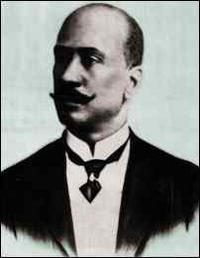3.7.10 Critical notes by Martín Morúa Delgado (1857 – 1910)

Martín Morúa Delgado was essentially an intellectual who dedicated himself to defending workers’ rights, contributing to their ideological formation and their organization in unions. He also sided with Black people and engaged in a bitter polemic with Juan Gualberto Gómez, both of whom were Black but shared different views on racial equality.
In this sense, Morúa advocated preserving the cultural identity of African roots, without enclosing it, and not allowing the imposition of customs and practices specific to the white race and/or the upper echelons of society, the latter of Spanish descent.
He did not have a long or systematic career in literary criticism; however, he nonetheless contributed to shaping the ideological landscape of the latter part of the 19th century. In this sense, his criteria stem from the questionable didactic function he attributed to literature; this conception was shared by other critics of the period and somewhat hindered the island’s literary creation.
In 1892, he published a pamphlet entitled “The Novels of Mr. Villaverde,” in which, rather than analyzing the essence of the work’s plot and purpose, he focuses on some flawed details and inaccuracies Villaverde made in his collation of data, which are of little significance for a strictly literary judgment. His critique questions the work’s moral relevance.
However, he generally recognized the value of this and other works by Villaverde, and by extension of Cuban narrative, which was still consolidating as a genre in Cuba, unlike poetry, which already boasted figures of universal renown.
In addition to his critical notes and political interventions, especially in the working-class context but also for the independence struggle, he wrote several verses and was one of the first essayists on the subject of race, with the text “Cuba and the Colored Race.” He published writings in “El Pueblo,” “El Separatista,” “La República,” “El Cubano Libre,” “Revista Popular,” “La Tribuna,” “Revista Cubana,” “Las Avispas,” “El Fígaro,” “La Habana Elegante,” and others after the establishment of the Republic, in which he held several public offices, including that of senator.








